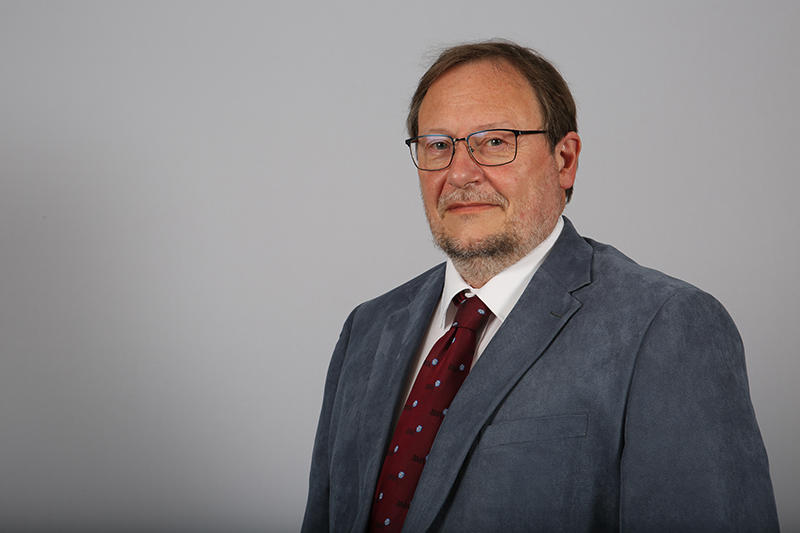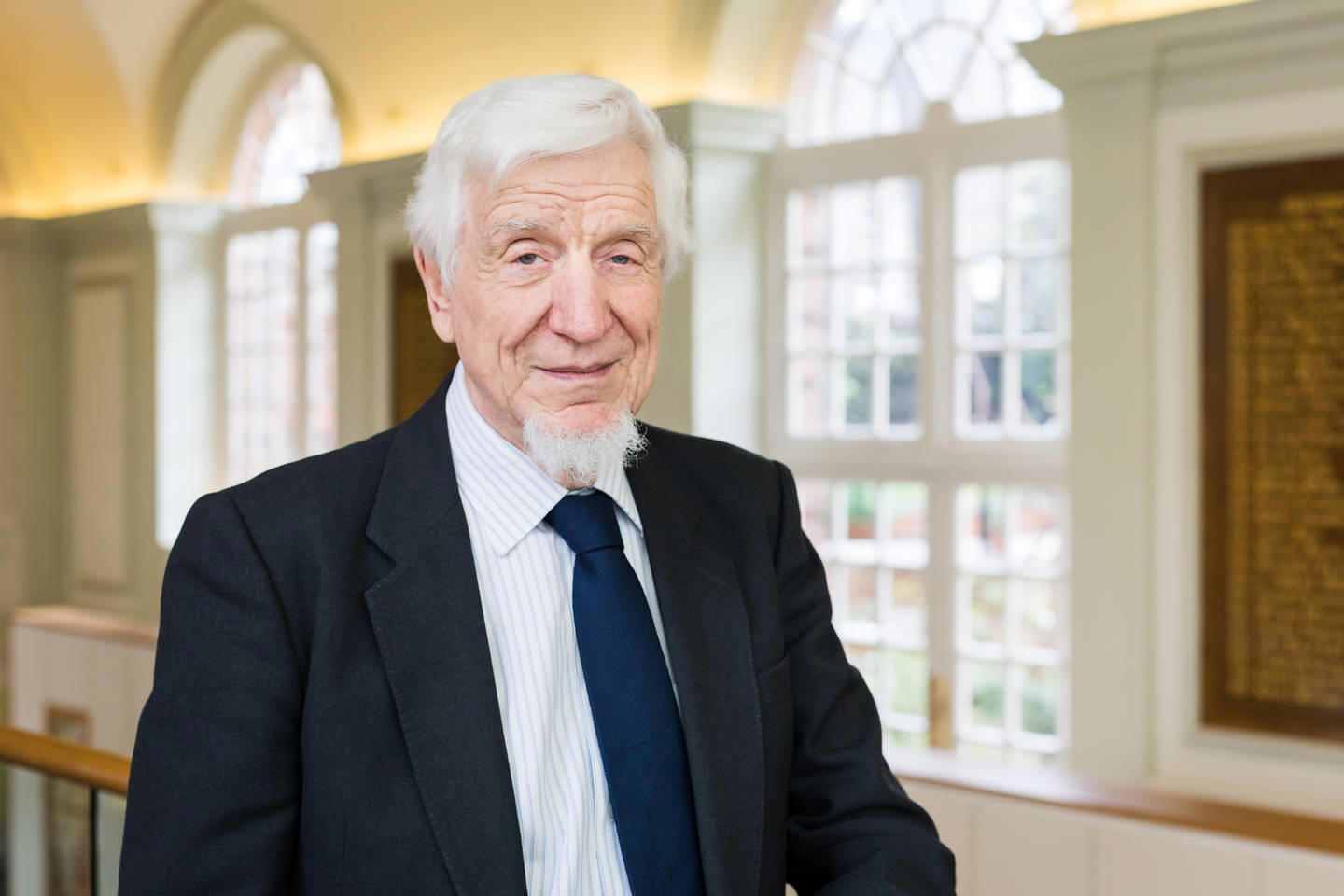It’s new year’s eve and you’re the most senior doctor on duty. You’re hugely understaffed, due to sickness. During the night, you have three cardiac arrests and five MET calls. You phone eight people to tell them their relative has died. And you’re still a junior doctor.
Medicine today can feel very unfair – for that Sussex registrar, for patients on waiting lists, for an overstretched, underpaid workforce.
Amid shocking inequalities and scant resources, talk of fairness in medicine might seem pie in the sky.
But it’s precisely at times like this that values should be discussed and defended. That’s the belief of former BMA president Raanan Gillon and current council chair Phil Banfield – and they want to start a conversation about how to make medicine fairer.
‘For me, fairness sits above all other BMA values,’ says Prof Banfield. ‘It’s central to how we do business, how we behave with each other, how we interact with society, how we practise medicine.
‘It’s important to talk about this now because our health service is being actively dismantled – and we need to be crystal clear about what we stand for if we’re going to try to preserve all that’s good about the NHS.’
Their timing is not arbitrary. The WMA (World Medical Association) recently added ‘fairness’ to its International Code of Medical Ethics, thanks partly to Prof Gillon’s lobbying on behalf of the BMA.
But does fairness as a principle translate into the British context of a failing health service and an increasingly unequal society? Is it even possible to try to uphold it?
Professors Banfield and Gillon suggest that it is – and offer their thoughts as a discussion-starter.
 BANFIELD: Lack of fairness in the workplace an issue
BANFIELD: Lack of fairness in the workplace an issue
Prof Banfield’s personal manifesto championing fairness is hard to disagree with – although, as he admits, he’s led by the heart.
He has a clear vision for his role as BMA council chair and as a doctor: ‘If something’s unfair or unjust, I can't resist leading with my chin into the fight,’ he says. ‘I’m unafraid of what others think of me.’
As a consultant obstetrician in a deprived area of North Wales, he’s in regular contact with health inequalities: they present at his antenatal clinics every week. He often thinks back to a young woman who came to reception cradling what she said was an abandoned baby she’d found.
‘But it just didn't feel right so we spent a long time talking to her,’ says Prof Banfield. ‘It turned out that she’d given birth to the child, hadn't told anyone, hadn't got any money, and thought that this was the best thing for her baby.’
He’s also concerned about lack of fairness in the workplace, which often manifests as disrespect. That might be a patient’s family being kept in the dark because they ‘wouldn’t understand’ the technicalities of treatment – or a consultant who introduces himself by his full name and title, and his junior colleague by her first name.
Prof Banfield’s definition of fairness is closely related to equality and treating people as individuals.
‘We have to try to put ourselves in other people’s shoes. I can never fully understand what it's like to be them, so perhaps I should listen to what they’re saying and feeling.’
Challenging hierarchies
Upholding fairness, outworking it in practice, stems from this fundamental belief in the need to value people as individuals, for Prof Banfield.
In organisational culture, this means promoting diversity and inclusion. But it can also be as simple as recognising a colleague is facing challenges in their health or personal circumstances – perhaps by sending them home.
‘Your effectiveness, efficiency, patient safety, productivity as a team, these are all linked to people being able to contribute to the best of their abilities,’ says Prof Banfield.
If something’s unfair or unjust, I can’t resist leading with my chin into the fightProf Banfield
Dismantling unnecessary hierarchies is an important part of this too, he believes. Prof Banfield has made it a priority to flatten BMA structures – including the decision not to differentiate between ‘senior’ and ‘junior’ members – and he hopes these changes will influence workplace culture too.
‘When I was a theatre porter at 18, this man came bouncing down the corridor in his white boots, stuck his hand out and said, “Hi, I'm Steve George, I'm the houseman.” And I said, “Hi, I'm Phil, I'm only the porter.” And he said: “You’re never ‘only’ anything. If the porter doesn't get the patients, we can’t operate.”’
Prof Banfield is struck by NASA’s example, where hierarchies shift depending on the task at hand. ‘They’ll switch between leader and follower, depending on what the task is and who has the best skills to lead it.
‘In medicine, sometimes the only difference between me and the person who’s starting out or qualifying is that I'm older. We need to recognise we’re all in this together.’
Prof Banfield acknowledges these are ambitious goals, especially in the current climate. But he’s also adamant that every practical step, however small, can help make medicine fairer – whether it’s protecting whistle-blowers or being active bystanders who call out poor behaviour.
‘We can all influence attitude and culture, and model good behaviour. The world isn’t fair but it’s our job to try to make it fairer.’
Lobbying for wider societal and systemic change – and transparency – is also vital. ‘If we don’t stand up for fairness, my antenatal patients who have nothing are going to get even poorer. It isn't inherently fair, either, that junior doctors qualify with £100,000 in debt and get paid £14 an hour.
‘This Government has to decide what the health service is and be honest about it. If they're not going to provide the same health service, they should say so, and then say what they are going to provide. But don’t do it through this salami-slicing and incremental reduction. It's playing the public for fools.’
 GILLON: What do we mean by justice in healthcare?
GILLON: What do we mean by justice in healthcare?
How can we be just and fair when there’s not enough to go around? How do we agree on what’s fair?
While every doctor wants to do their best for each patient, the current reality in the UK is that medicine is fraught with dilemmas and competing claims.
Prof Gillon, emeritus professor of medical ethics at Imperial College London and retired GP, believes that today’s pressures demand a more deliberate, committed focus on fairness. But he’s not so naïve as to believe that’s straightforward.
‘There’s no simple answer to the question, “What do we mean by fairness and justice in healthcare?” I believe that most of us agree that we ought to try to be fair, but we don’t necessarily agree on what we mean by that.’
Prof Gillon suggests that a first step might be to adopt ‘fairness’ as both a personal and an organisational value or principle. He’d like to see ‘Be fair’ enshrined as a BMA behaviour principle, for example, alongside ‘Be professional, accountable, kind, representative and respectful’. And he’d like doctors to commit to at least trying to be fair.
I believe that most of us agree that we ought to try to be fair, but we don’t necessarily agree on what we mean by thatProf Gillon
On behalf of the BMA, he was part of the drafting group responsible for adding ‘fairness’ to the WMA’s International Code of Medical Ethics, relating it to the rights of both patients and health professionals. This was one of the aims of his BMA presidential project on fairness in 2019–2020.
Along with ‘beneficence, non-maleficence and respect for autonomy’, fairness is one of four ‘prima facie’ principles of medical ethics identified by Beauchamp and Childress, whose approach Prof Gillon has long advocated. All four are now reflected in the WMA’s International Code.
Prof Gillon insists that ‘high-level' principles such as these are practical tools, not abstract aspirations. They provide a framework for decision-making, a point of reference against which options can be weighed. But they need to be thought about, specified, contextualised, ‘translated’ into practical action.
‘With a crash call, you do what you know you have to do because it’s been worked out from first principles and agreed and practised in advance. Likewise, we should think about the ethical problems we encounter in medicine and try to agree in advance on how to deal with them, using those four principles to help us.’
A case for inequality
Like Prof Banfield, Prof Gillon wants to see greater equality in the workplace – but he adds an important qualification.
Fairness is just one of four principles, and these may conflict. And there are many different substantive theories of fairness or justice, which may also conflict, as legal battles over the withdrawal of life support painfully prove.
In this moral minefield, the different substantive theories of justice do at least agree on Aristotle’s ‘formal principle’ of justice or fairness, which says: ‘Equals should be treated equally and unequals should be treated unequally in proportion to the relevant inequalities.’
For example, the NHS doesn’t withhold treatment from patients who have knowingly exposed themselves to risk, whether skiers or drug users. But it tends to give precedence to people in the greatest medical need (where greater need is a ‘relevant inequality).
‘At least part of medical care and medical ethics is to say: those people need to be treated differently from others – ‘unequally’ – because they need it more. Treating people equally is crucial, but so is treating people unequally!
’So, let’s start with Aristotle’s formal principle and work together on the morally difficult task of deciding when it is fair to treat people equally and when it is not fair to do so.’
Being clear about what informs your decisions – your goals, your worldview, including your ‘theory of justice/fairness’ – not only makes you accountable but also can help you live with tough choices.
So, a utilitarian approach adopted during the second world war, for example, meant that soldiers with venereal disease were prioritised for penicillin treatment over the wounded, because they had the best chance of returning to the battlefield. COVID too required some unpalatable prioritising, in order to ‘protect the NHS’. ‘Of course, utilitarianism is vigorously rejected by other theories of justice!’
Introduce the question of scope (the range of people you consider in decision-making), and things become more complex still. GPs might argue their focus is the patient in front of them (until someone arrives in reception looking pale and sweaty and clutching their chest): a climate activist might insist that future people, as yet unborn, need to be considered in allocating resources.
‘It’s important to recognise what the competing basic moral concerns are,’ says Prof Gillon, ‘and then to have a system in which you can debate and agree, ideally, on how you deal with these conflicts in different contexts.’
Prof Gillon stresses, as Aristotle did, that medical ethics is not an exact science: dilemmas often don’t have simple answers. He also recognises that shared decision-making isn’t always possible, especially at 3am when you’re the most senior doctor on duty.
‘By all means, let's work out the professional view of dealing with these dilemmas. But let’s also be ready to accept, wherever possible, that if there are very good reasons for doing x and y, and x and y are morally incompatible, that we may need to allow people to use their informed discretion and moral judgement in that instance.
‘Medicine is full of hard choices but committing ourselves to trying to be fair, whatever we mean by that, is an important starting point.’

